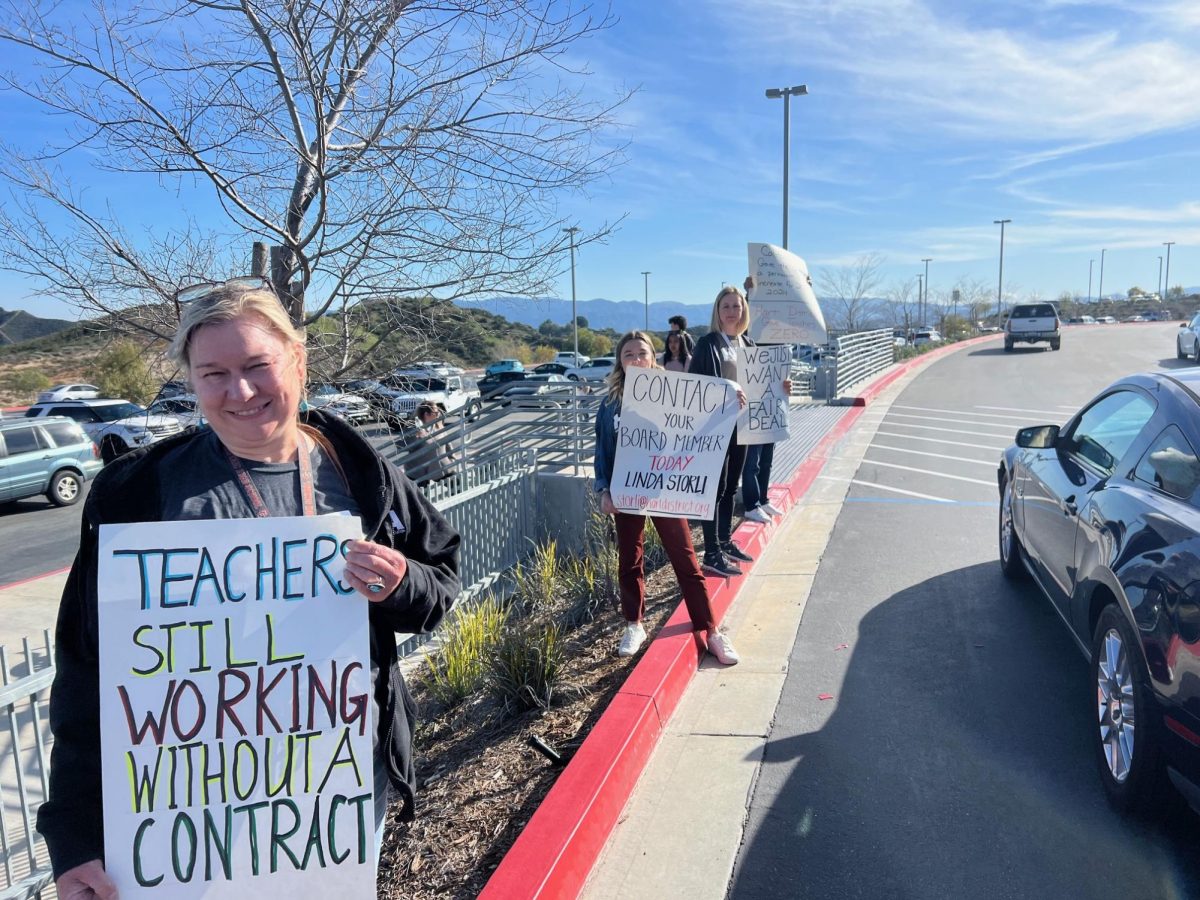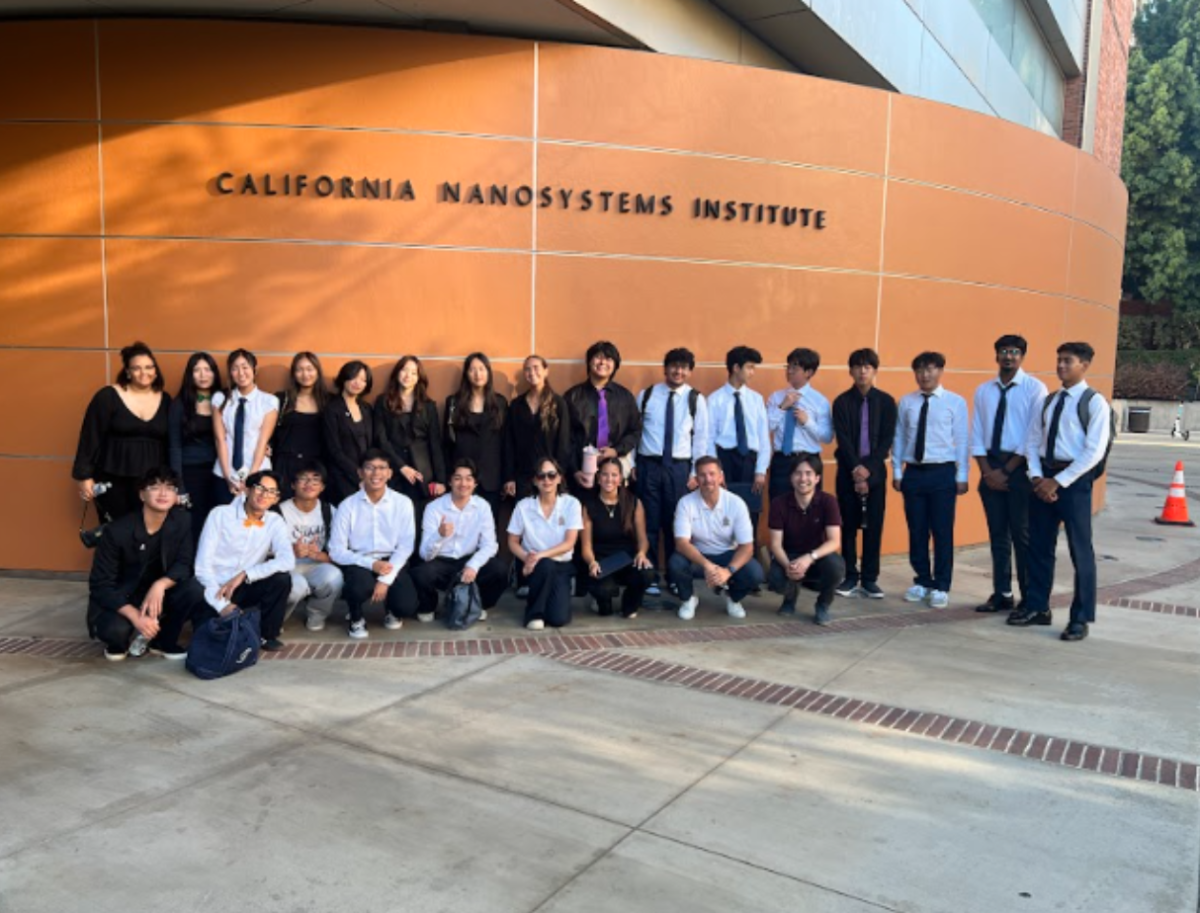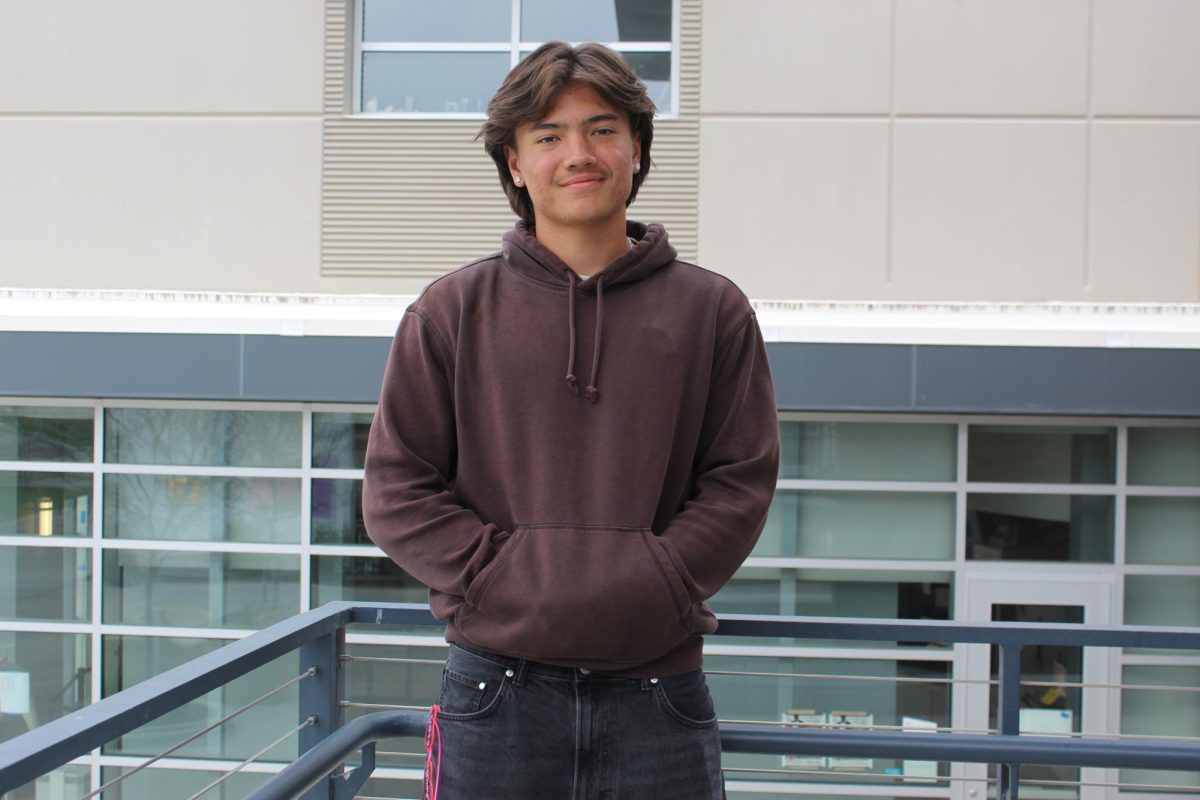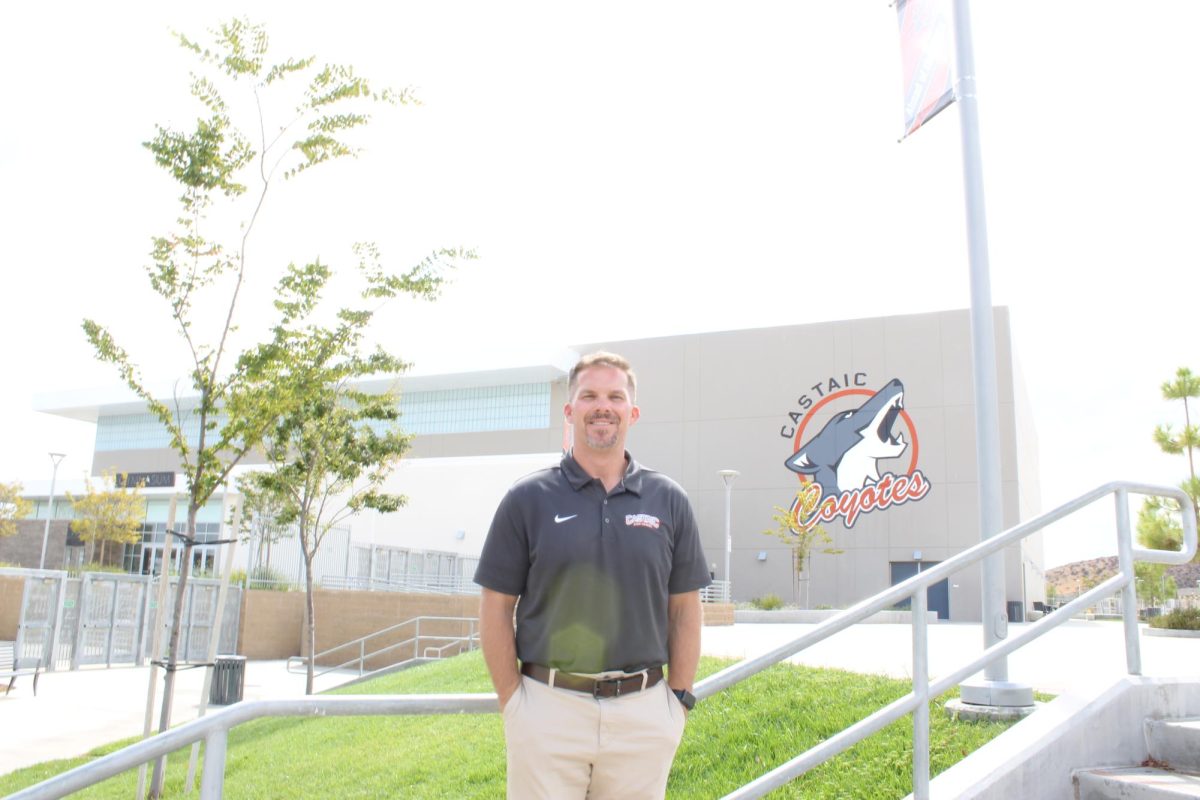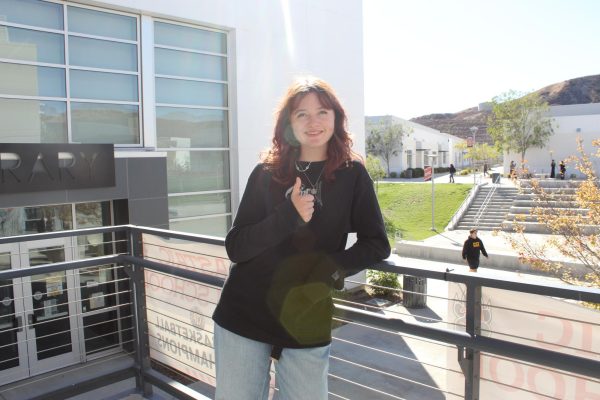Members of the Hart District Teachers Association (HDTA) have made recent attempts to create resolutions with the Hart District administration board regarding their wages and contract conditions. They’ve done this through ‘acts of unity,’ which have included holding up signs to advocate their message: the district should increase their pay to align with the increased COA.
What’s HDTA?
HDTA is a union for school workers, such as teachers, counselors, and social workers, whose goal is to “provide equal opportunity, promote a just society, and foster democracy through quality public education.” Many of our staff are members of this union, repping with their HDTA t-shirts and attending board meetings with the district.
Whats COLA?
COLA stands for cost of cost of living adjustment. California just raised their cost of living in May of 2023 by 8.2%. This makes living here more expensive, such as housing costs.
“It’s the reason I’m moving,” said calculus teacher, Michael Turski.
To accommodate this increase, the Hart District was given increased government funding by the state.
The problem?
The district has directed 0% of this money towards the teachers’ and other school staff’s salaries, despite teachers composing 85% of the budget. It is also notable that the district is in no deficit when it comes to finances and is in no fiscal distress — instead, the members of the school board have each raised their salaries by a 10% average. They’ve also refused to increase teacher wages four times since May of 2023. All of this is without a teacher contract, which allows teachers to make agreements with employers concerning salaries, time off, training, etc.
How it’s impacting our teachers
English teacher and HDTA member Eve Itaya reflects on the cost of living over the years.
“I find that we don’t have more money now that my kids are all grown up and financially independent because things cost so much more now,” she said, “so you would think that we would have extra income to spend but we don’t because gas, eating out, groceries, etc. cost more.”
Itaya, like many other teachers in the district, believes the Hart District not increasing their teachers’ salaries is completely ignorant.
“I think it’s short-sighted of the district to do that,” Itaya added.
Jon Welch, a history teacher at Castaic, added that this situation causes teachers to have financial repercussions for working in their desired careers.
“It’s a really unfair position I’m put in — choosing
between my passion and what I love to do and what I can do to provide for my family and my children.”
Turski agrees, adding, “Like any business, you try to keep costs down — that’s just the business world; it’s a shame that it bleeds into school districts.”
Our teacher librarian Lori Hermelin is the HDTA site representative for Castaic High School. She states how the overall goal of the acts of unity is for the district to “see that we[teachers] are resolved in standing together in our expectation that the district gives us a fair deal. We want them to know that we are united because teachers are the heart of the district and so we feel that needs to be acknowledged and celebrated and it costs money.”
Why it matters
“Everything in a community is tied to the quality of education,” said Itaya. Even down to the pricing of houses, because a community with a good education system attracts families. “If schools do not remain great, then the cost of property goes down,” she explains. A public opinion poll conducted by the California Education Partners concludes that residents of California rank improvements in public education higher than other important issues such as environmental quality and crime reduction. The National Bureau of Economic Research finds that for every one dollar spent on school funding, property value increases by 20 dollars. The school district has a direct relation to the local economy, and keeping education in Santa Clarita strong is what will keep the community strong.
Other districts, such as Palmdale School District and Los Angeles Unified School District, have raised their school staff’s wages to accommodate California’s increased COLA. Seeing fair pay elsewhere only swells the passion of teachers and other school staff to fight for change. It may even lead some of Hart’s staff to transfer to the other districts with more sustainable paychecks, which would leave our district understaffed and limited.
“Most people who go into teaching go into it knowing that it isn’t the highest paying job in the world. But it matters just as much as being a doctor,” Heremlin said.
Castaic High School parent Niki Silver has a similar viewpoint. “Our teachers shape our youth, everything. Future doctors, lawyers, artists, congressmen. Every single brain, every single person; our upcoming generation. Teachers absolutely deserve beyond the bare minimum they’re receiving.”
Change is in progress
One way teachers show their unity and demand for higher wages is by closing their rooms during brunch, lunch, and after school, refusing to work during their free, unpaid time. Many participate, but not all.
“It’s just personal for me,” said Welch, one of the few teachers who has been keeping his door open. “The way I interpret it is that it’s my duty-free time so I get to choose how to spend it… what’s most rewarding for me is being with the students.”
He continues to explain that he understands the teachers who want and need that break, it’s simply his preference to leave open the opportunity for students to hang out in his room or ask for help during break times.
Effect on students
Junior Alexis Baker provides some insight into how students are being negatively affected by the situation. “There are people who need help and aren’t getting it because the teachers aren’t getting paid enough.”
“It makes me upset that it’s gotten to the point where teachers have to shut their doors at brunch and lunch. I don’t understand how the district made around $300 million last year and still can’t pay our teachers who work so hard for us,” said sophomore Alexandria Strayhorn.
Although Strayhorn believes the teachers are having a justified reaction, she also highlights how the burden of the district’s decision extends to the students as well.
“I like being able to sit in my favorite teacher’s classroom and eat or just have a nice conversation with them, especially when the weather’s bad. And now I don’t have a safe space where I can do so. I know most teachers don’t want to shut their doors, but it’s what they have to do and it’s sad it’s come to that,” she said.
“The students are definitely being impacted by this, but that’s the whole point,” said senior Fernanda Matias. “The teachers do so much unpaid work, and they’re trying to highlight that.”
“We really don’t want to have to take any steps that impact our students,” said Hermelin. Itaya agrees, explaining how the minimal steps they’ve taken, like closing the classrooms during lunch and holding up signs after school, is a much better alternative to striking, which she claims has a more negative impact on students.
Recent updates
During this Wednesday’s meeting, the district’s board members announced budget cuts due to, according to them, a decrease in state funding. This new plan to curtail costs includes laying off teachers, which was officially approved by the board Wednesday. Some Hart teachers have already gotten layoff notices, with an estimated 61 employees affected, including additional staff, such as bus drivers and custodians.
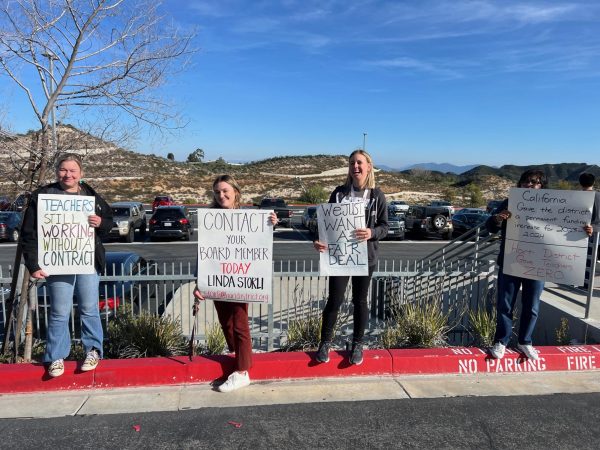
Welch describes how, despite the threat of the layoffs, Hart’s staff is all on the same page — they want fairer pay and a fair contract.“We’re still working this year without a contract. The negotiations that are happening right now — they’ve been dragged out year after year,” he said. Welch believes that the district could benefit from having a more concise and thought-out plan that would support their decisions for years to come, rather than last-minute resolutions.
How you can help
The HDTA wants the community to understand their current (and long-standing) struggle. And those who participate in holding up signs after school simply want to spread awareness.
“I’m hoping that this becomes a dinner table topic that families are starting to talk about,” said Hermelin.


